THE BRAZILIAN CENTER OF ANALYSIS AND PLANNING (CEBRAP)
Developed Projects
Materials Available on the Online Collection
Researchers at CEBRAP
Organizations have already supported CEBRAP
CEBRAP
In 1969 a group of professors expelled from the universities by the dictatorship founded The Brazilian Center of Analysis and Planning – CEBRAP to be a free thinking forum for production of knowledge in Brazil.
Global Center
Active for 50 years, Cebrap stands out in the national scene with research projects, publications and seminars marked by a multidisciplinary approach, academic rigor and impact on public debates. Cebrap carried out more than 500 research projects, worked with about 200 national and international partners and consolidated a position as a high-standard research center, reference in the production of frontier knowledge in the various human sciences, housing some of the country’s leading researchers and intellectuals and operating as a forum for debate on major national issues.
Cebrap is a global research center which establishes partnerships with institutions, development agencies and civil associations from different countries around the world, such as UK, USA, Germany, France, India, China, Mexico, South Africa, among others. Recognized as the 40th best public policy think tank in the world, according to the University of Pennsylvania ranking (2018), Cebrap carries out impact research both by subsidizing the formulation of new policies and by contributing to the monitoring and evaluation of public actions.
Multidisciplinary Research
Cebrap’s focus is the analysis of the Brazilian reality, with an approach that emphasizes comparative analysis and combines specialization and interdisciplinarity, in constant dialogue among the different theoretical and methodological perspectives of the areas of origin of its researchers: Sociology, Political Science, Demography, Law, Philosophy, History, Anthropology, Economics and Geography.
Cebrap currently houses 41 permanent researchers and 140 associated researchers, 60 of them holding PhD degrees. This academic staff investigates several subjects: Democracy, Collective Action, Development, Innovation, Cities, Urban Mobility, Inequality, Population, Healthcare, Education, Violence, Human Rights, Gender, Race, Religion and Drug Policies. Most of the research projects aim help on the decision making process of public institutions, civil associations and private companies.
Expertise in Research Methods
Cebrap is also known by its methodological skills, which uses both quantitative research, such as surveys, GIS and network analysis, as well as qualitative data, such as case studies, ethnographic techniques, interviews and focus groups. Furthermore, Cebrap develops data visualization projects and conducts thematic courses, methodological workshops and research technique training.
Knowledge Diffusion
Cebrap publishes its research through different media, such as Novos Estudos, which is an interdisciplinary academic journal containing contemporary research; the Virtual Library, the compiling of video archives and articles produced by Cebrap; and the traditional Cebrap Seminars, for fueling discussions on Brazilian political and social reality.
Experience and innovation
Cebrap has achieved a rare generational transition, functioning for decades as an incubator for new researchers, in professional and academic training programs at both national and international levels. The success of these initiatives can be gauged by the large number of researchers who have achieved prominent positions in universities, as well as at different levels of government.
As a result of cross-generational exchanges, research teams at Cebrap combine the long and recognized experience of senior researchers and the vitality and new skills of the younger generation.
Supporters and Sponsors






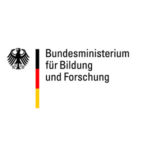
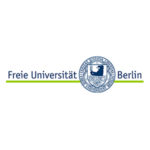





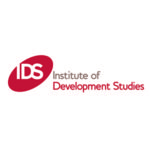


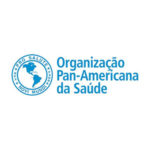
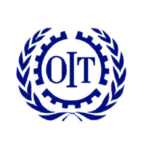
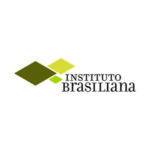



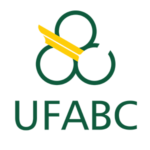




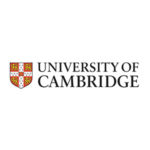
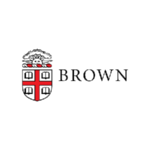
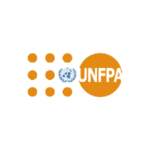



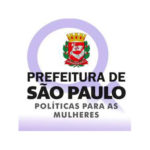
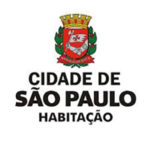
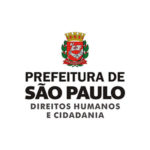
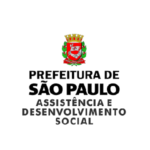

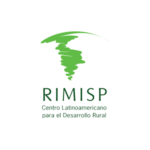
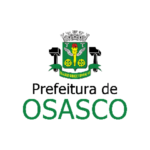


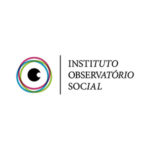

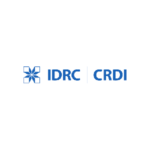



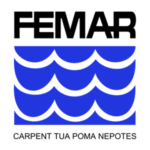



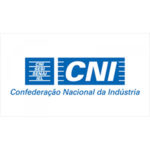
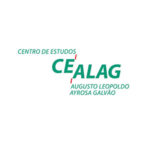

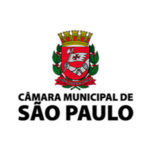
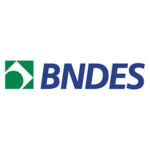






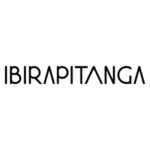
Support and Supporters










































Structure Members
Partners
|
Alvaro Augusto Comin Adrian Gurza Lavalle Amauri Bier Angela Alonso Antonio Candido de Melo e Souza Antonio Flávio de Oliveira Pierucci † Antonio Ignacio Angarita da Silva Antonio Kandir Argelina Cheibub Figueiredo Betty Mindlin Bolivar Lamounier Carlos Eduardo Torres Freire Carmen Sylvia Junqueira Celso Lafer Danielle Ardaillon Diana Reiko Oya Sawyer Eduardo Cesar Leão Marques Elza Berquó Esdras Borges Costa Eunice Ribeiro Duhram † Fernando Henrique Cardoso Fernando Limongi |
Fernando Novais Francisco Correa Weffort Francisco Maria Cavalcanti de Oliveira Frederico Mathias Mazzucchelli Gabriel Bollafi † George Avelino Filho Geraldo Müller Gesner José Oliveira Filho Guillermo O’Donnell † Haroldo Torres Jair Licio Ferreira Santos John Manuel Monteiro † José Arthur Giannotti † José Reginaldo Prandi José Serra Josildeth Gomes Consorte Juarez Rubens Brandão Lopes † Leôncio Martins Rodrigues Lídia Goldenstein Lucio Felix Frederico Kowarick |
Luiz Antonio de Castro Santos Luiz Carlos Bresser Pereira Luiz Carlos Costa Luiz Felipe de Alencastro Luiz Henrique Lopes dos Santos Marcia Regina de Lima Silva Marcos Nobre Maria Carolina da Silva Leme † Maria Flora Gonçalves Maria Graciela G Perez de Morell Maria Hermínia Tavares de Almeida Maria Nazareth Ferreira Maria Teresa Sales de Melo Suarez Marleida T Borges Marta Teresa da Silva Arretche Mauricio Segall Melanie Farkas Miriam Dolhnikoff Monica Baer Nadya Araujo Guimarães Orlando Sampaio Silva |
Oswaldo Herbster Gusmão Paul Israel Singer † Paula Montero Paulo Alves Pinto Paulo Sandroni Pedro de Barros Silva Pedro Paulo Poppovic Plinio Soares de Arruda Sampaio Jr Rebeca de Souza e Silva Roberto Schwarz Rodrigo Naves Ronaldo Porto Macedo Júnior Ronaldo Rômulo Machado de Almeida Rubens Murillo Marques Rui de Brito Alvares Affonso Sérgio Fausto Teresa Pires do Rio Caldeira Vera Schattan Ruas Coelho Waldomiro Pecht Walter Barelli |
Fiscal Council
Paulo Mattos
Flávio Moura
Mariza Nunes
Carlos Torres Freire
Haroldo da Gama Torres
Jair Lício
Executive Board
Adrian Lavalle
Angela Alonso
Arilson Favareto
Eduardo Marques
Elza Berquó
Graziela Luz Castello
Marcia Lima
Marcos Nobre
Maria Hermínia Tavares
Marta Arretche
Mauricio Fiore
Miriam Dolhnikoff
Nadya Guimaraes
Paula Montero
Raphael Neves
Rúrion Melo
Board of Directors
Adrian Gurza Lavalle (president)
Victor Callil (administrative director)
Arilson Favareto (scientific director)
Bianca Tavolari (seminars coordinator)
Monise Fernandes Picanço (course coordinator)
Advisory Board
|
Antonio Ignácio Angarita Da Silva Beatriz Muniz De Souza Betty Mindlin Carmen Sylvia Junqueira Celso Lafer Elza Berquó |
Esdras Borges Costa Eunice Ribeiro Durham † Fernando Henrique Cardoso José Arthur Giannotti † João Yunes † Juarez Rubens Brandão Lopes † |
Leôncio Martins Rodrigues Neto Manoel Tosta Berlinck Maria Hermínia Tavares De Almeida Melanie Farkas Oswaldo Herbster De Gusmão Paul Israel Singer † |
Paulo Sandroni Pedro Paulo Poppovic Rubens Murillo Marques Ruth Corrêa Leite Cardoso † Vilmar Faria † Waldomiro Pecht |
Researchers Chamber
Adrián Gurza Lavalle
Adriano Januário
Alexandre Abdal
Alexandre Barbosa
Alvaro Comin
Ana Paula Galdeano
Andrea Marcondes Freitas
Angela M Alonso
Argelina Figueiredo
Arilson Favareto
Bianca Medeiros
Bianca Tavolari
Camila Rocha
Carlos Eduardo T. Freire
Charles Kirschbaum
Comunicação
Daniela Costanzo
Debora Alves Maciel
Eduardo Marques
Elza Berquó
Feliciano Guimarães
Felipe Szabzon
Fernando Bee
Fernando Costa Mattos
Fernando Limongi
Flávia Rios
Flávio Prol
Gabriel Feltran
Graziella Castello
Haroldo da Gama Torres
Hellen Guicheney
Inara Marin
Ivan Fernandes
John Sydenstricker-Neto
Jonas Medeiros
José Arruti
Jose Rodrigo Rodriguez
Lara Mesquita
Louise Nakagawa
Lucas Petroni
Maira Rodrigues
Márcia Lima
Marcos Nobre
Margareth Arilha
Maria Carolina de Oliveira
Maria Hermínia Tavares de Almeida
Marta Arretche
Marta Rodriguez Machado
Maurício Fiore
Michelle Ratton Sanchez Badin
Miriam Dolhnikoff
Monika Dowbor
Monise Picanço
Nadya Araújo Guimarães
Paula Montero
Pedro Puntoni
Priscila Vieira
Rafael de Souza
Raphael Neves
Renata Bichir
Renata Ribeiro
Ricardo R Terra
Ronaldo Almeida
Rúrion Soares Melo
Samuel Moura
Samuel Rodrigues Barbosa
Sandra Garcia
Sérgio Costa
Tania Di Giacomo do Lago
Thomas Wissenbach
Tomaz Amorim
Vera Schattan Coelho
Victor Callil
Code of Good Research Practice
This Code sets out the guidelines and procedures for good research practices adopted by the researchers of the Brazilian Center of Analysis and Planning (CEBRAP) concerning their teams or third-party collaborators regarding research ethics, safeguards comprising vulnerable populations, transparency, and anti-corruption measures.
CHAPTER I
Research ethics
Article 1 – CEBRAP seeks to meet the following ethical guidelines when pursuing its research goals:
I – intellectual honesty.
II – transparency and protection of privacy.
III – integrity.
IV – social and scientific responsibility.
V – equity in work and employee relations.
VI – respect for the country’s legislation.
VII – consistency with the codes of research ethics established by the country’s leading scientific institutions.
Sole paragraph. Additional guidelines and policies can be applied to particular projects, as long as approved by the President of CEBRAP.
Article 2 – We understand as scientific misconduct:
I – to artificially manufacture research data or conclusions that have not taken place.
II – to falsify data or conclusions, misleadingly presenting research results.
III – to plagiarize ideas or formulations, concealing the proper credit that would identify their original researcher.
IV – to disregard legislation and other definitions of best practices laid out in this document.
Article 3 – The research coordinator’s responsibility is to ensure their research to be in full compliance with research ethics guidelines.
§1. Any research conducted by CEBRAP’s members shall fully comply with the provisions laid out in this Code according to the Good Research Practice Form presented at the end. Therefore, any research containing the items laid out in the Form as “fully covered” shall be deemed appropriate after the research coordinator’s approval statement.
§2. In case a research is deemed as “partially covered” or “not covered,” a justification regarding the non-compliant items shall be drafted in the Form.
§3. A committee or reviewer appointed by the Scientific Coordinator of CEBRAP shall assess such justification. They may consider the adopted procedures to be sufficient or request new procedures to solve the issue, as often as necessary, until there is a final opinion attesting full compliance with this Code.
Article 4 – CEBRAP vows to make the results of their research public, as long as it does not involve violating any contractual confidentiality clauses, data protection, and the right to privacy.
Sole paragraph. It is the research’s coordinator’s attribution to ensure that data collection and storage are compliant with the Brazilian General Data Protection Law.
Article 5 – CEBRAP adopts the best open science practices and grants full access to its results through its Virtual Library or in a partner’s content database.
CHAPTER II
Safeguards concerning vulnerable populations and social groups
Article 6 – No research conducted by CEBRAP, nor any of the institution’s contracts shall violate people’s and social groups’ rights, especially vulnerable populations.
§1. We understand vulnerable populations to be those who are not able to give informed consent and therefore cannot protect themselves against any material or irreversible damage, such as violence, exploitation, or discrimination – be it because of their age, sexual preference, ethnicity, race, gender, physical or mental disabilities that somehow have reduced their full comprehension of partaking any research.
§2. Vulnerability can also arise from particular situations, such as those experienced by migrants who are still unfamiliar with the country’s language, culture, and procedures.
Article 7 – Economic and labor relations between CEBRAP’s suppliers and collaborators, including all types of outsourced services and relations among researchers, scholarship holders, and other non-employment ties, shall be guided by non-discriminatory policies of race, gender, or vulnerability.
Article 8 – People responsible for events and other activities promoted by CEBRAP shall make a continuous effort to take inclusive measures that enable accessibility, operational adjustments, and proper material and language according to the needs of vulnerable people and groups or those with special needs.
Sole paragraph. This article’s provisions comprise the ongoing improvement of accessibility to CEBRAP’s headquarters.
CHAPTER III
Transparency measures and anti-corruption practices
Article 9 – No research carried out at CEBRAP, nor any contract signed by the institution shall comprise corrupt practices.
Sole paragraph. Corruption is understood here as any received undue advantage, or any expectation of future advantages due to the misuse of the power entrusted to any professional for their own benefit or to the benefit of third parties, whether or not it harms national or foreign public assets.
Article 10 – It is up to the administrative director of CEBRAP to maintain the administrative, accounting, and tax records used to manage the institution’s contracts.
Article 11 – An independent and sovereign Fiscal Board shall audit and analyze CEBRAP’s accounts under its Bylaws. The results of these audits will be regularly disclosed on CEBRAP’s website.
CHAPTER IV
Code of practice
Article 12 – Complaints involving any infraction provided for in this Code must be forwarded to CEBRAP’s Ombudsman, with the right to anonymity of the whistleblower guaranteed during the said complaint processing.
§1. CEBRAP’s Ombudsman shall be an outside person chosen by the Executive Board for a two-year term.
§2. The Ombudsman shall answer all complaints without distinction. When applicable, they will name two Executive Board members to prepare a report about the complaint, observing any conflicts of interest between the plaintiff and people involved in such a process.
Article 13 – The Executive Board is responsible for:
I – promoting the culture of best practices listed here to all of its researchers and outside collaborators through its wide dissemination, institutional advice, and everyday practice.
II – condemning and punishing any improper conduct.
§1. It will be up to the Executive Board – summoned with at least one week’s advance and guided by such report – to decide if the complaint is real and assign the responsibility to whoever caused it, by the majority of the present votes’ members.
§2. The Executive Board may suspend the researcher responsible for scientific misconduct for a period to be determined according to the case’s seriousness, or recommend the Members’ Association they be removed from CEBRAP’s research activities.
§3. Any appeal to the Members’ Association shall be assessed within fifteen days, which may, by most votes of the members present, maintain or reduce the suspension time, and, whenever deemed appropriate, decide on dismissing such collaborators.
Article 14 – This Code shall be made public, and contracts with suppliers and service providers shall henceforth comprise its understanding and agreement with such guidelines, under penalty of being removed from the list of suppliers and service providers, especially concerning the articles laid out in Chapters 2 and 3.
Article 15 – Any cases and situations not foreseen by this Code shall be analyzed by the institution’s Scientific Coordinator, who shall forward a proposal on dealing with them to the appropriate body, according to CEBRAP’s Bylaws.
Link to the Good Research Practice Form.
Ombudsman
Professor Dr. Michelle Ratton Sanchez Badin
ouvidoria@cebrap.org.br
Assistant professor at FGV São Paulo School of Law (Brazil), and its Law and Development postgraduate program. Coordinator of FGV/SP Center of Global Law and Development. Co-coordinator of the WTO Chair in Brazil. Current director of the Red Latinoamericana de Derecho Económico Internacional and of the Brazilian chapter of the International Law Association, and founding member of the Society of International Economic Law (SIEL).
She has a Ph.D. from the Law School of the University of São Paulo (USP). She was visiting scholar at the International Law Section of the Graduate Institute of International Studies (GIIS), in Geneva, Switzerland (2001), and Global Crystal Eastman Fellow of the Global Law Program at the Univeristy of New York (2007).
Communication Department
Strada Comunicação – comunicacao@cebrap.org.br
Financial and Administrative Department
IT department
Completo Tecnologia – https://www.completo.com.br/
IPP - International Postdoctoral Program
Maria Herminia Tavares de Almeida, coordinator
Vera Schattan, co-coordinator
About the Program – https://cebrap.org.br/ipp/
Novos Estudos Journal
Renata Ribeiro Francisco, editora
Fernando Bee, editor-assistente – novosestudos@cebrap.org.br



